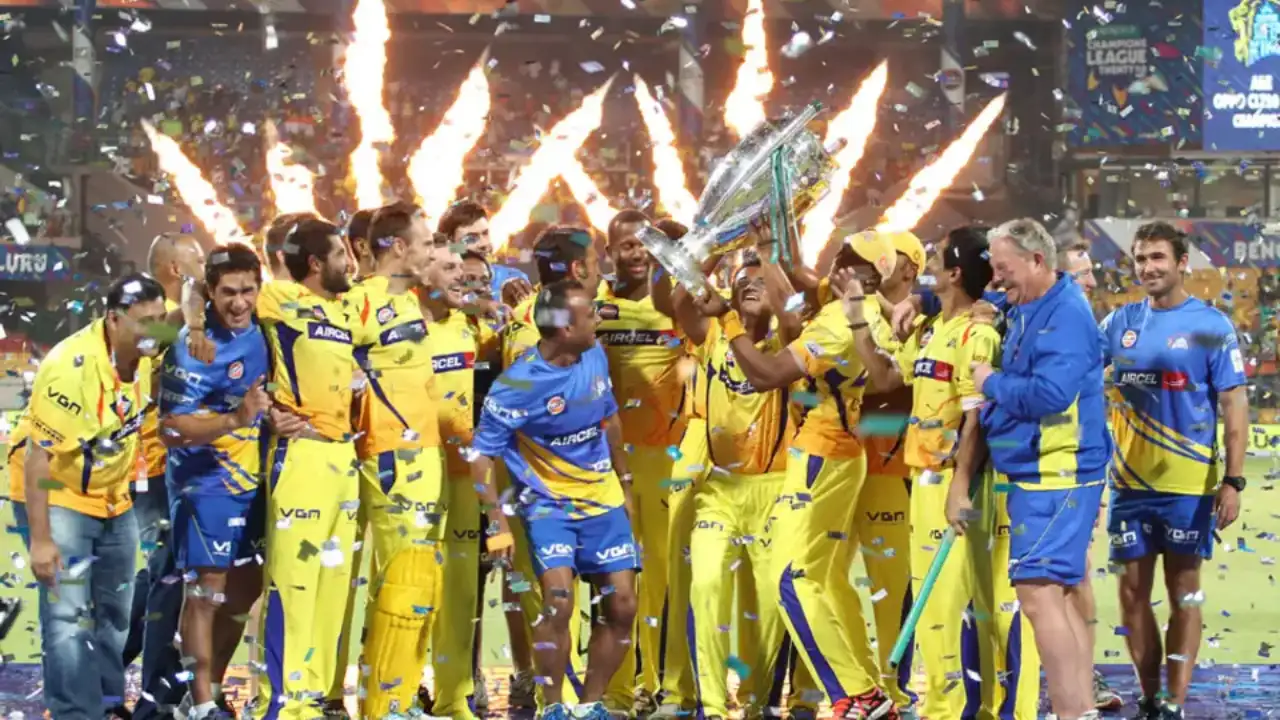
The Champions League T20 is set for a comeback after a decade |courtesy - BCCI
KEY HIGHLIGHTS
- Six editions of the CLT20 were held
- CSK and MI won the trophy twice
- The tournament is set for a return soon
11 years after Chennai Super Kings (CSK) defeated Kolkata Knight Riders (KKR) at the M Chinnaswamy Stadium in Bengaluru to lift the 2014 Champions League T20 title, which turned out to be the tournament's last edition, the iconic competition is heading for a return.
As per a report by the Sydney Morning Herald, the International Cricket Council (ICC) discussed the tournament's return during their recently held annual conference in Singapore. The decision to bring back the tournament received backing from key members.
It has been decided that the tournament's first edition since its reintroduction will take place as early as next year (2026) in September.
The published information also revealed that while a decision is yet to be made on how the financials will be split for the tournament but Saudi Arabia has emerged as a potential host.
For those unversed, the tournament was first launched in 2008 with the Board of Control for Cricket in India, Cricket Australia, and Cricket South Africa as equal partners. However, the tournament was scrapped after its sixth edition in 2014 due to the broadcaster ESPNStar's decision to withdraw.
Among Indian teams, CSK and Mumbai Indians (MI) won the title twice each. The Super Kings were crowned champions in 2010 and 2014, while MI won the title in 2011 and 2013. The inaugural edition in 2009 was won by New South Wales while the Sydney Sixers lifted the title in 2012.
The concept of the tournament is largely the same as the football Champions League, as it aims to give a chance to the best T20 franchise teams around the world, a chance to compete against each other.
Since the 2014 edition, the T20 franchise scene around the world has drastically changed with various high-profile leagues cropping up.
However, there remain big issues to fill as owners of the teams in various leagues are the same, while some players play for multiple teams.
